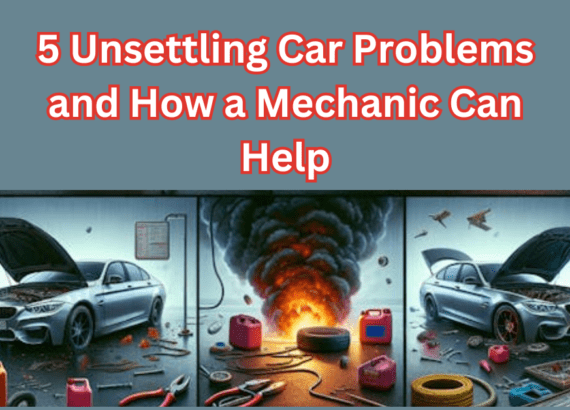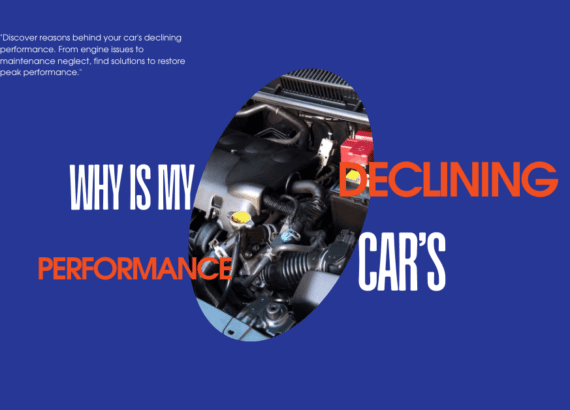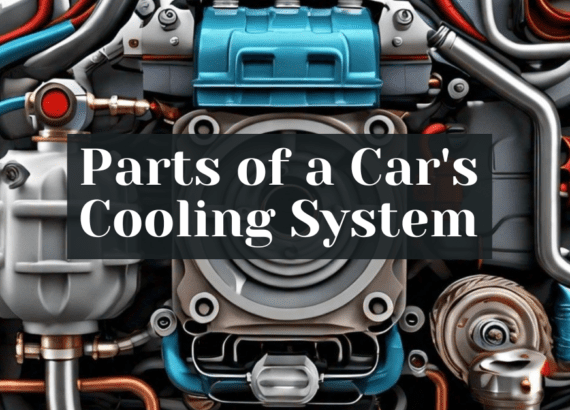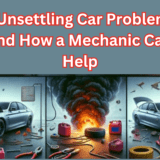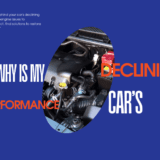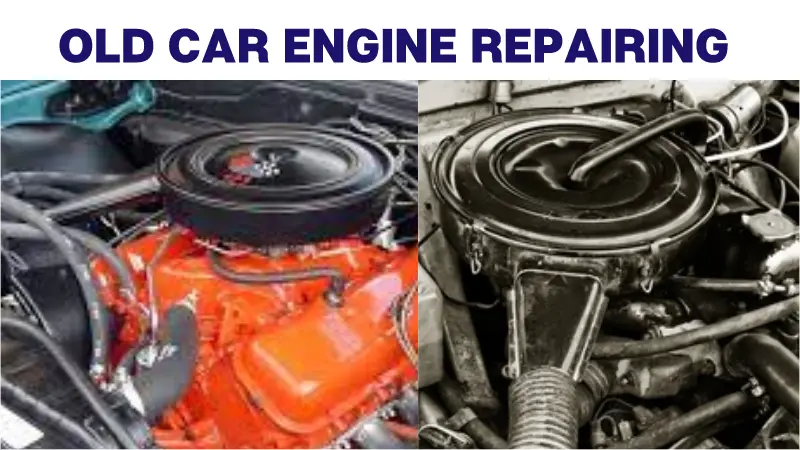Why is My Car’s Performance Declining?

When your vehicle starts to exhibit a decline in performance, it’s important to be vigilant and recognize the signs early on. Several factors can contribute to this decline, ranging from minor issues to more serious problems.
As someone with a penchant for automobiles, I’ve learned through personal experience and regular checks that staying equipped with knowledge about common reasons for deteriorating performance can save you from frustration down the road. One of the symptoms often overlooked is warning lights on the dashboard.
While drivers may sometimes ignore them, they are vehicles’ way of conducting regular checks and automatically diagnosing faults. Ignoring these actions can lead to serious problems that need to be rectified immediately.
Power loss
When your car’s performance begins to wane, one of the most concerning issues is power loss. It’s not just a minor inconvenience; it’s a serious indicator that warrants immediate attention. Whether it’s a sudden drop in power or a gradual decrease in performance, every motorist experiences that dreaded moment when pressing the accelerator doesn’t yield the expected response from the engine. It’s like a jolt to the system, leaving you wondering what could be wrong.
From low oil levels to clogged air filters, from bad spark plugs to faulty fuel filters, the biggest signifiers of power loss often hide in the unseen depths of your car’s mechanics. As someone who’s spent countless hours under the hood, I’ve learned that ignoring these issues can lead to more abrupt breakdowns on the road.
That’s why it’s advisable to seek the expertise of a qualified mechanic for a thorough diagnosis and swift fix. After all, a dirty fuel system or clogged fuel channels might not just be a hiccup in your driving experience; it could be the precursor to a serious breakdown.
HOW TO FIX POWER LOSS ?
When ensuring your vehicle’s engine operates optimally, simple maintenance routines are crucial. Factors such as regular oil changes and timely engine checks by a professional can significantly influence its performance. If you notice a decline in power, don’t overlook the significance of a healthy battery and well-maintained parts. Ignoring these factors can lead to a frustrating experience on the road.
In my own experience, a neglected engine can swiftly transform a smooth ride into a sluggish journey. Therefore, prioritizing regular engine checks and maintenance not only keeps your car in good condition but also ensures a consistent and reliable driving experience.
Unusual and excessive engine noise
Uncommon and knocking sounds from your car’s engine can be alarming, indicating underlying issues that demand immediate attention. While uncommon hissing or popping sounds may seem like minor disruptions, they often signal significant problems within the combustion flow. As someone who has spent years working with engines, I’ve learned that these sounds are not to be ignored.
When your engine begins to produce such uncommon sounds, it’s typically a sign of combustion irregularities or disruptions in the combustion process. Such experience has taught me that delaying action can lead to costly repairs or even engine failure. It’s crucial to address these uncommon sounds promptly to restore optimal performance and ensure the longevity of your vehicle.
Strange smell
Addressing unfamiliar smells emanating from your vehicle can uncover crucial insights into its health. As an engine enthusiast and seasoned driver, I’ve learned that peculiar odors are often early indicators of underlying issues. Interference with the exhaust system or mechanical issues within the engine can result in a distinct scent permeating the cabin.
Ignoring these olfactory warnings can lead to costly repairs down the line. It’s imperative to promptly investigate any unusual smells to prevent further decreased engine performance and potential safety hazards.
The engine continues running when the ignition is turned off
One of the imperative issues car owners may encounter is the engine persisting to run even after the ignition has been shut down. This peculiar occurrence often sends alarming signals to drivers, indicating potential malfunctions within the vehicle. Such an incident can be attributed to various factors, including electrical faults, fuel system issues, and timing problems.
Ignoring these signals can lead to severe consequences, ranging from overheating to complete failure of the engine. It is advisable to seek professional assistance promptly to diagnose and rectify the underlying cause of this malfunction. Timely intervention can prevent further damage and contribute to the longevity of the car’s engine. At the repair shop, a thorough problem diagnosis can unveil issues such as interference with the solenoid, carburetor problems, or the use of incorrect octane gas.
Other Potential Causes of Declining Performance
While the continuation of the engine running post-ignition is crucial to address, several other factors may also contribute to a decline in car performance. Damaged solenoid or carburetor problems could also be culprits behind the malfunction. Therefore, a comprehensive inspection of the vehicle is essential to prevent any further issues and ensure smooth operation on the road.
Drop in fuel efficiency

One of the glaring signs of a performance slump is a noticeable drop in fuel efficiency. Every mile seems to burn more fuel than before, and the powertrain feels strained. But why is this happening?
How to Fix the Drop in Fuel Efficiency?
Now, let’s delve into the crucial question: how to fix this unsettling decline. Fortunately, there are different things you can do to address this issue and get your car back to optimum performance levels.
Firstly, ensure your engine is performing at its best. Over time, clogged injectors and poor airflow can impede combustion, leading to increased fuel consumption and diminished performance. Consider using fuel system cleaners to help remove deposits and restore efficiency.
Next, don’t overlook the importance of your tires. Underinflated tires not only cause increased rolling resistance but also contribute to poor fuel efficiency and tire wear. Properly inflated tires generate less heat and ensure optimal performance. Make it a habit to check your tire pressure at least once a month using a reliable gauge.
Additionally, pay attention to your air conditioner usage. Running the AC excessively can put an extra strain on your engine, leading to increased fuel consumption. Try to use it sparingly, especially during acceleration or when in power mode.
Lastly, consider where you refuel. Not all gas stations offer the same quality of fuel. Opt for reputable stations, and you may notice a difference in performance. You can also find fuel additives at auto parts stores that claim to improve efficiency.
By following these steps and staying proactive about your car’s maintenance, you can address the drop in fuel efficiency and enjoy a smoother, more efficient ride once again.
Decreased Fuel Economy
Experiencing a sudden drop in fuel economy can be an alarming sign for any car owner. When your vehicle starts consuming more fuel than usual, it’s a clear indication that something isn’t right under the hood. This decline in efficiency not only impacts your wallet by increasing your gas expenses but also hints at potential underlying issues within the engine.
One common culprit behind decreased fuel economy is a clogged fuel system. Over time, dirt and impurities can build up within the system, hindering its operation and affecting overall performance. This buildup not only compromises the efficiency of fuel delivery but also leads to poor combustion in the engine’s chamber. As a result, your car ends up burning more fuel than necessary, causing an unexpected increase in fuel consumption.
To safeguard your vehicle’s fuel system and ensure optimal performance, it’s necessary to eliminate these harmful impurities regularly. This can be achieved through the use of high-quality fuel additives like BP Ultimate ACTIVE, formulated to safeguard engine components and promote smooth acceleration. By incorporating such top-notch technology into your maintenance routine, you can maximize fuel efficiency and extend the lifespan of your vehicle.
High Emission Levels
Another troubling issue associated with declining performance is high emission levels. When your car emits excessive smoke or exhaust, it’s not just an environmental concern but also a sign of potential engine problems. Whether it’s black or white smoke, these emissions indicate the severity of the issue at hand.
Ignoring high emission levels can lead to further damage to your vehicle and even pose risks to your health. It’s important to keep track of any changes in emission patterns and address them promptly. Immediate action is necessary to prevent power loss, decreased fuel economy, and other detrimental effects on your car’s performance.
If you notice any unusual emissions or suspect an engine problem, it’s crucial to have your car serviced immediately. A qualified mechanic can diagnose the issue and recommend the appropriate solutions. From checking the catalytic converter to fixing any underlying engine problems, addressing high emission levels requires timely intervention to safeguard both your vehicle and the environment.
How to Fix the High Emission Issue?
Remedying high emission levels involves a systematic approach aimed at restoring your car’s performance while minimizing its environmental impact. The first step is to identify the root cause of the emissions, which may be indicated by symptoms such as poor performance or a lit Check Engine light.
Once the issue is diagnosed, a skilled mechanic can recommend the necessary repairs or replacements. This may involve cleaning or replacing the catalytic converter, addressing engine malfunctions, or conducting thorough maintenance to ensure optimal performance.
By taking proactive measures to fix high emission levels, you not only improve your car’s performance but also contribute to a cleaner and healthier environment. Investing in regular maintenance and addressing issues promptly can help safeguard your vehicle’s longevity and reduce its carbon footprint for years to come.
Increased Vibration of the Engine
As a car enthusiast, I’ve encountered the unnerving experience of my car shaking unexpectedly while driving. It’s not just an annoyance; it’s a sign that something could be wrong with the powertrain or suspension. Ignoring this issue is not only unwise but could also lead to expensive and dangerous consequences.
When your car starts to vibrate excessively, it’s an important indicator that something isn’t quite right. It could mean there’s a loose component in the suspension or even a more serious problem with the powertrain. This is why it’s crucial to get your car serviced as soon as possible. Addressing any problems promptly can prevent them from escalating into costly and hazardous situations.
Intermittent Stalling
Another issue that car owners dread is intermittent stalling. Picture this: you’re cruising down the road when suddenly your car stalls out of nowhere. It’s not just an inconvenience; it’s a warning sign that something could be seriously wrong with your vehicle.
Stalling can be caused by a variety of factors, from a faulty spark plug to an issue with the fuel system. Often, these problems manifest themselves in unusual ways, such as more frequent stalling than usual. Ignoring these warning signs could lead to costly repairs or even serious damage to your car’s performance.
It’s crucial not to overlook these issues. Getting your car checked out by a professional at the first sign of trouble can save you a lot of headaches in the long run. Thank you for listening to my expertise on this matter.
Conclusion
When your vehicle starts to exhibit a decline in performance, it’s important to be vigilant and recognize the signs early on. Several factors can contribute to this decline, ranging from minor issues to more serious problems. As someone with a penchant for automobiles, I’ve learned through personal experience and regular checks that staying equipped with knowledge about common reasons for deteriorating performance can save you from frustration down the road.
One of the symptoms often overlooked is warning lights on the dashboard. While drivers may sometimes ignore them, they are vehicles’ way of conducting regular checks and automatically diagnosing faults. Ignoring these actions can lead to serious problems that need to be rectified immediately. From low oil levels to clogged air filters, from bad spark plugs to faulty fuel filters, the biggest signifiers of power loss often hide in the unseen depths of your car’s mechanics.
As someone who’s spent countless hours under the hood, I’ve learned that ignoring these issues can lead to more abrupt breakdowns on the road. That’s why it’s advisable to seek the expertise of a qualified mechanic for a thorough diagnosis and swift fix. After all, a dirty fuel system or clogged fuel channels might not just be a hiccup in your driving experience; it could be the precursor to a serious breakdown.
FAQs
Why does my car feel slower than usual?
Common causes of why a car feels sluggish when accelerating include dirty mass air flow sensor (MAF), faulty spark plugs, defective throttle position sensor, clogged catalytic converter, faulty oxygen sensor, clogged air filter, and fuel system malfunctioning.
What causes poor acceleration in a car?
The most typical causes of a car not accelerating while driving include a faulty sensor, contaminated fuel or air filters, or a faulty timing belt. Generally, this isn’t something you should ignore.
What are the signs of a weak car engine?
7 Signs of a Failing Engine
- Check Engine Light. This light is the most obvious clue
- Constant Overheating. If the engine is overheating often then it is about time that you get it checked
- Decreasing Fuel Economy
- Loss of Power
- Engine Stalling
- Rough Idle
- Excessive Noises and Vibrations.
Can a dirty air filter cause slow acceleration?
If it feels like your car is not responding quickly or is sluggish when you press the accelerator, this could mean that dirty air is getting to the engine. Your engine does not work well with contaminated air. The engine does not put out enough power or performance when it is dirty.
Can a bad fuel filter cause slow acceleration?
Yes, absolutely. The lack of fuel due to a blocked filter will cause a lean condition (not enough fuel, too much air). The lean condition will make the car lose power when there is a high demand for fuel.
